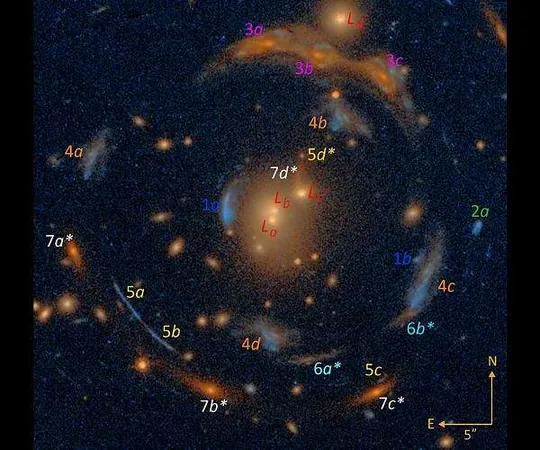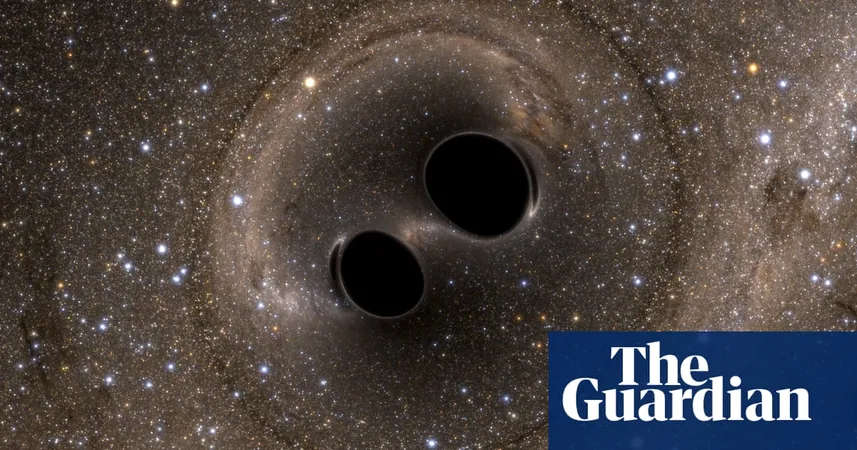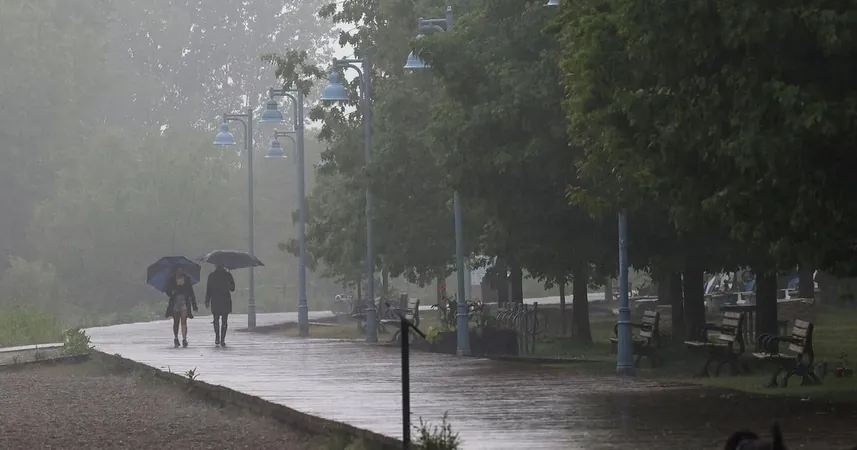
Revolutionizing Our Cosmic Understanding: The Game-Changer of Multi-Messenger Gravitational Lensing
2025-06-16
Author: Jacob
A New Dawn in Astrophysics
Get ready for a cosmic breakthrough! Scientists from the University of Birmingham have unveiled a revolutionary study that may forever alter our understanding of the universe through an innovative method called multi-messenger gravitational lensing.
Bending Space to Uncover Secrets
This cutting-edge approach harnesses the extraordinary power of massive galaxies and galaxy clusters to bend space and magnify distant cosmic phenomena. By combining gravitational lensing with groundbreaking instruments capable of detecting gravitational waves and electromagnetic signals, researchers are set to unlock unprecedented insights into the cosmos.
The Future of Cosmic Investigation
Published in *The Philosophical Transactions of The Royal Society A*, the study highlights both the potential and challenges of this multi-faceted approach. Key obstacles include accurately pinpointing lensed explosions and fostering collaboration across various scientific disciplines.
Calls for Collaboration and Innovation
The research team emphasizes the urgent need for enhanced cooperation, data sharing, and innovative analytical techniques to conquer these hurdles. Professor Graham Smith, leading the charge, stated: "Recent advances in detector technology allow us to observe cosmic events across a vast spectrum—from radio waves to gamma rays and gravitational waves. This innovative method could lead to significant breakthroughs in understanding gravity, the universe's expansion, dark matter, and the evolution of black holes and neutron stars over the next 5 to 10 years."
Utilizing the Power of Multi-Messenger Signals
The strategy taps into 30 energy orders of magnitude, utilizing high-energy neutrinos and gravitational waves. Upcoming observatories like the Vera C. Rubin Observatory and the LIGO-Virgo-KAGRA will be pivotal in this exploration. Notably, the LSST at the Vera C. Rubin Observatory, launching in late 2025, promises to revolutionize the field further.
A Collective Effort for Cosmic Discovery
Professor Smith stressed that this journey is a collaborative effort involving many early-career researchers and scientists worldwide. "By uniting our talents, we open the door to innovations and discoveries that could fundamentally transform our understanding of the universe."
A Vision for Future Science
Dr. Gavin Lamb from Liverpool John Moores University shared his excitement, stating, "This ambitious vision for the future of science is on the horizon as our detectors become more advanced. What was once a mere idea has now become groundwork for the next generation of scientists."
A Glimpse into the Exciting Future
Helena Ubach, a postgraduate researcher at the Universitat de Barcelona, reflected the enthusiasm felt by many in the scientific community: "Being part of this project is thrilling, and I eagerly look forward to the advances in the burgeoning field of Multi-messenger Gravitational Lensing in the near future."
Join the Cosmic Quest!
As we stand on the brink of monumental discoveries, the movement toward multi-messenger gravitational lensing promises to unveil the mysteries hidden in the cosmos. Stay tuned, because the universe is about to reveal its greatest secrets!









 Brasil (PT)
Brasil (PT)
 Canada (EN)
Canada (EN)
 Chile (ES)
Chile (ES)
 Česko (CS)
Česko (CS)
 대한민국 (KO)
대한민국 (KO)
 España (ES)
España (ES)
 France (FR)
France (FR)
 Hong Kong (EN)
Hong Kong (EN)
 Italia (IT)
Italia (IT)
 日本 (JA)
日本 (JA)
 Magyarország (HU)
Magyarország (HU)
 Norge (NO)
Norge (NO)
 Polska (PL)
Polska (PL)
 Schweiz (DE)
Schweiz (DE)
 Singapore (EN)
Singapore (EN)
 Sverige (SV)
Sverige (SV)
 Suomi (FI)
Suomi (FI)
 Türkiye (TR)
Türkiye (TR)
 الإمارات العربية المتحدة (AR)
الإمارات العربية المتحدة (AR)